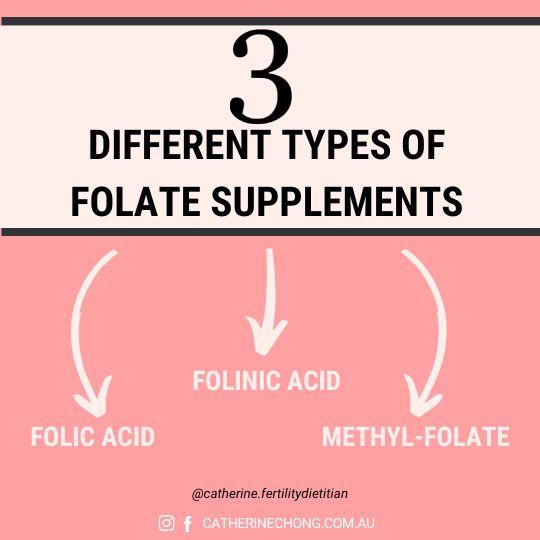In the enchanting realm of pregnancy, the formation and growth of tiny life within is nothing short of a majestic wonder. As an expectant mother, you embark on a captivating journey filled with delightful anticipation and overwhelming responsibility. Among the myriad of concerns that may occupy your thoughts, one essential aspect stands paramount: ensuring the optimal development of your baby’s delicate neural tube. In this ethereal guide, we unveil the enchanting tale of folate and folic acid — two extraordinary nutrients that hold the key to unlocking the secrets of a healthy neural tube development, empowering you to navigate this mystical path with confidence and grace. So, let us embark together on this magical odyssey, where science intertwines with the miracles of life, as we delve into the realms of folate and folic acid, illuminating the mesmerizing chronicles that shape your little one’s flourishing future.
Understanding Folate: The Natural Vitamin Essential for Neural Tube Development
Understanding Folate
The Natural Vitamin Essential for Neural Tube Development
Folate, also known as Vitamin B9, is a crucial nutrient for pregnant women as it plays a vital role in the development of the neural tube in the early stages of pregnancy. The neural tube is the structure that eventually forms the baby’s brain and spinal cord. Ensuring an adequate intake of folate is particularly important during the first trimester, when the neural tube is rapidly developing.
Folate is found in a variety of natural food sources such as dark leafy greens, citrus fruits, and legumes. However, it is worth mentioning the distinction between folate and folic acid. While both compounds are forms of Vitamin B9, folate refers to the natural form found in foods, whereas folic acid is the synthetic form used in supplements and fortified foods. It is recommended that pregnant women prioritize increasing their intake of food sources of folate, as it is more readily absorbed by the body compared to folic acid.
| Food Source | Folate Content (mcg per serving) |
|---|---|
| Spinach (1 cup cooked) | 263 |
| Avocado (1 medium) | 90 |
| Black Beans (1 cup cooked) | 256 |
It is worth noting that some women may require additional folic acid supplementation, as recommended by their healthcare provider. This is especially true for those who have a higher risk of neural tube defects due to factors such as a history of previous pregnancies affected by neural tube defects or certain medical conditions. Remember, always consult your healthcare provider to determine the appropriate level of folate/folic acid supplementation for your individual needs.
The Role of Folic Acid in Pregnancy: Synthetic Supplement or Necessity?
When it comes to the important topic of neural tube development during pregnancy, the terms “folate” and ”folic acid” are often used interchangeably. However, it is crucial for expectant mothers to understand the differences and make educated choices. Folate is the natural form of vitamin B9 found in foods, while folic acid is its synthetic counterpart commonly used in supplements and fortified foods. Both play a significant role in preventing birth defects, especially those related to the neural tube.
The benefits of consuming folic acid during pregnancy include:
- Reducing the risk of neural tube defects such as spina bifida and anencephaly.
- Supporting the rapid cell growth and development of the fetus.
- Contributing to the formation of red and white blood cells.
On the other hand, some argue that relying solely on synthetic folic acid may not provide all the essential nutrients found in natural folate-rich foods. While incorporating folate-rich foods into your diet is undoubtedly important, it can be challenging to meet the recommended daily intake through diet alone. Therefore, many healthcare professionals recommend taking a folic acid supplement in addition to consuming folate-rich foods. By doing so, expectant mothers can ensure they are getting the necessary amount of vitamin B9 during this critical time.

Choosing the Right Form: Folate or Folic Acid for Optimal Neural Tube Development
When it comes to promoting optimal neural tube development during pregnancy, choosing the right form of supplementation is crucial. Folate and folic acid are both essential nutrients that play a key role in preventing neural tube defects, but understanding the differences between the two can help pregnant women make informed choices for themselves and their babies.
Folate:
- Folate is the natural form of vitamin B9, found in a variety of foods such as leafy green vegetables, legumes, and citrus fruits.
- It is easily absorbed by the body and converted into its active form, 5-MTHF, which is essential for DNA synthesis and repair.
- Compared to folic acid, folate has been shown to offer better bioavailability and may provide additional health benefits due to its synergistic effects with other B vitamins.
Folic Acid:
- Folic acid is the synthetic form of vitamin B9, commonly found in fortified foods and prenatal supplements.
- While folic acid is not naturally occurring, it is easily converted into the active form of folate once consumed.
- It has a higher stability and bioavailability than natural folate, making it a more convenient option for many women.
Ultimately, the choice between folate and folic acid depends on individual preferences and needs. Some women may opt for a diet rich in folate, while others may prefer the convenience of folic acid supplements. Consulting with a healthcare professional can help guide expecting mothers in making the best decision for their specific circumstances.

Expert Recommendations: Ensuring Sufficient Folate Intake for a Healthy Pregnancy
Folate and folic acid are essential nutrients for pregnant women, as they play a crucial role in the development of the baby’s neural tube. While often used interchangeably, there are some important differences between these two forms of vitamin B9. Folate is the natural form found in foods, while folic acid refers to the synthetic version used in supplements and fortified foods.
To ensure sufficient intake of folate during pregnancy, experts recommend a combination of dietary sources and supplementation. Here are some expert recommendations to help you prioritize folate intake:
- Eat a folate-rich diet: Incorporate foods such as leafy greens, citrus fruits, legumes, and fortified cereals into your meals. These natural sources provide various other nutrients beneficial for pregnancy.
- Consider prenatal supplements: Talk to your healthcare provider about a prenatal vitamin containing folic acid to meet your daily requirements. A supplement can fill any gaps in your diet and provide the necessary folate for neural tube development.
- Read labels: When purchasing fortified foods, check the labels for the percentage of Daily Value (%DV) of folate. Aim for products with higher percentages to maximize your intake.
Remember, adequate folate intake is vital in the early stages of pregnancy when neural tube development occurs. By following these expert recommendations and ensuring you have a balanced diet, you can optimize your folate intake and contribute to a healthy pregnancy.
Wrapping Up
In conclusion, this guide aimed to shed light on the crucial role of folate and folic acid in promoting healthy neural tube development during pregnancy. We explored the differences between the two and their unique contributions to the growth and protection of your baby’s spinal cord and brain.
Understanding the importance of folate-rich foods, such as leafy greens, legumes, and citrus fruits, can help you make informed choices to ensure your little one receives the necessary nutrients for optimal development. Equally essential is recognizing the role of folic acid supplementation, as it can provide a reliable source of this crucial vitamin during early pregnancy.
Remember, every developmental milestone your child achieves is linke to the early stages of their brain and spinal cord formation. By prioritizing folate intake through a balanced diet and considering folic acid supplements as recommended by healthcare professionals, you are actively investing in your baby’s future and giving them the best possible start in life.
As you embark on this incredible journey of motherhood, armed with knowledge and understanding, rest assured that you are doing everything you can to give your child the gift of a healthy nervous system. So continue to nourish yourself and your growing baby with the right nutrients, make well-informed choices, and embrace the miraculous path that awaits you.
May this guide serve as a compass, helping you navigate the intricate world of folate and folic acid, as you embark on this joyous expedition of nurturing new life within you.


